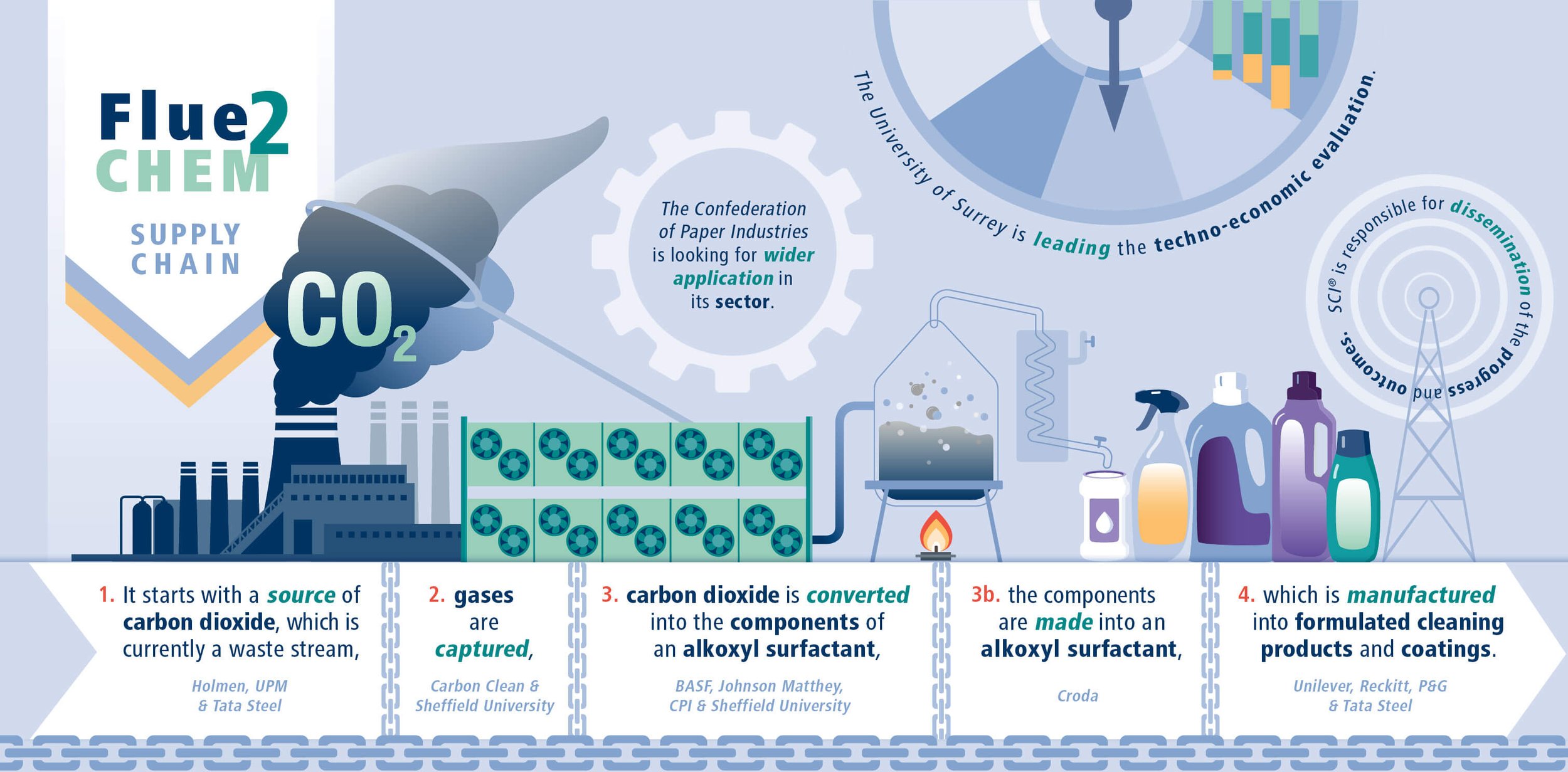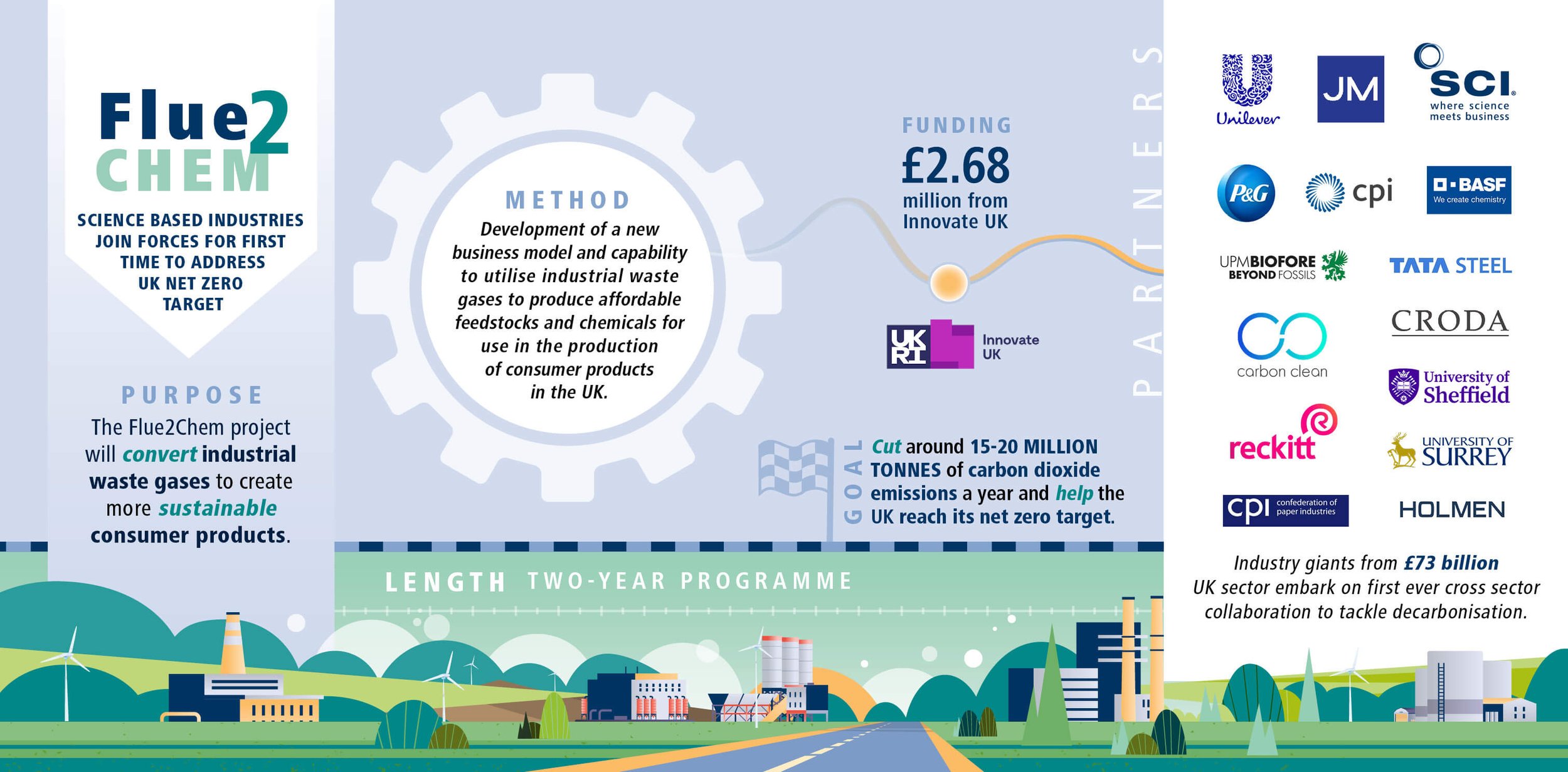CPI Tackles UK Net Zero Goal with Carbon Capture Project
CPI is joining forces with science-based industrial giants and others to address the UK’s net zero target
CPI and a consortium of 14 other businesses, universities and others have received a grant towards a project aimed at converting industrial carbon emissions to create more sustainable consumer products. The two-year project, called Flue2Chem, aims to cut around 15-20 million tonnes of carbon dioxide emissions a year and help the UK reach its net zero goal.
Flue2Chem is spearheaded by Unilever and SCI, with funding from Innovate UK via the UK Research and Innovation (UKRI) Transforming Foundation Industries Challenge. The partners aim to develop a business model and capability to utilise industrial carbon emissions from foundation industries such as metal, glass, paper, and chemicals and generate more affordable and sustainable feedstocks for use in the production of consumer products within the UK.
Yvonne Armitage, Business Unit Director, Biotechnology at CPI, said ‘’We are excited to be a part of this project which is effectively creating a new supply chain to be able to accelerate the UK’s need to be less reliant on fossil fuels. Decarbonisation is essential across process industries, and this can only happen through collaborative projects such as this to speed up the innovation process and have valuable inputs from the entire supply chain of producers and end users”.
In addition to CPI, SCI and Unilever, BASF, and Tata Steel, the other consortium partners are: BASF, Carbon Clean, Confederation of Paper Industries, Croda, Holmen, Johnson Matthey, Procter & Gamble, Reckitt, The University of Sheffield, The University of Surrey, UPM-Kymmene. These organisations encompass the capture, transformation, and use of the carbon emissions in the industry.
How does this work?
The aim of the consortium is to enable the use of industrial carbon emissions from foundation industries, such as the production of metals, glass, paper and chemicals, to generate an alternative source of carbon for UK consumer product production. This comes at a time when most of the carbon used in everything from electronics to home care and many other products is extracted from coal, oil and gas. If the UK is to reach its net zero targets by 2050, industries must find an alternative source for the carbon in these goods.
Aside from the technical aspects of the project, the business model development will frame the economic incentives that are likely to be required to make the model work. The project will bring together partners from across the whole supply chain to achieve this.
Currently, the UK is importing large amounts of carbon-containing feedstocks each year for use in the consumer goods industry. Securing an alternative domestic source of carbon in these goods is one way in which these sectors can contribute to net zero targets while also building a new UK value chain.
CPI’s role within the project
CPI will leverage its capabilities in microbial strain engineering, gas fermentation and formulation to engineer novel microbial strains and develop new fermentation and chemical processes to convert CO2 into medium-chain fatty alcohols before passing them on to the other partners for alkoxylation into surfactants.
CPI will also contribute empirical data from microbial C1 gas fermentations and insight into the techno-economic evaluation models being developed at the University of Surrey.
If you would like more information on the project please contact press@uk-cpi.com


